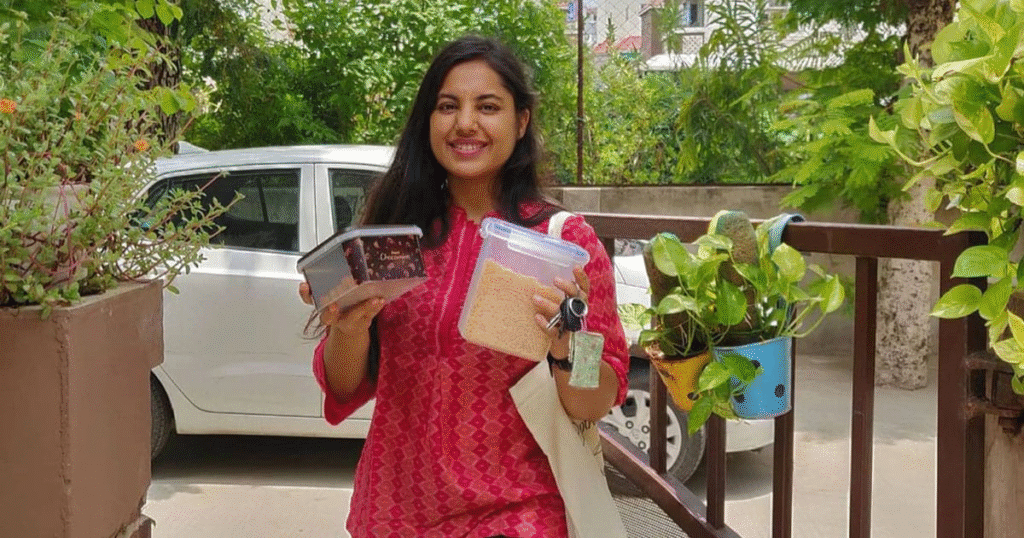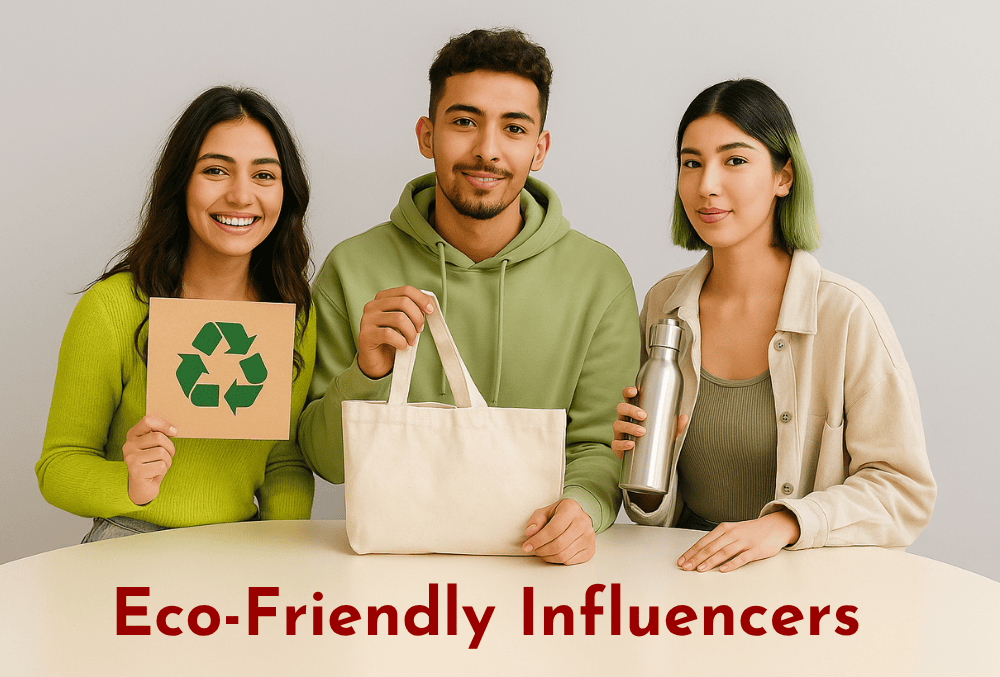A new wave of content creators in India is doing more than creating viral trends—they’re shaping a greener future. Eco-friendly influencers are becoming powerful allies for sustainable brands, educating audiences on responsible consumption and advocating for products that align with ethical values. This blog explores how these influencers are changing the rules of marketing and why brands need to take notice.
Why Sustainability Matters in Today’s Creator Economy
Sustainability is no longer just a CSR checkbox or a PR stunt—it’s a serious expectation from consumers, especially in digitally native demographics. The younger generation is driving a paradigm shift where values influence purchases as much as price or aesthetics. In this landscape, influencers aren’t just content creators—they’re change agents.
Let’s unpack the major cultural and economic forces that are making sustainability a central theme in influencer marketing.
Why Sustainability Matters in Today’s Creator Economy
Sustainability is no longer just a CSR checkbox or a PR stunt—it’s a serious expectation from consumers, especially in digitally native demographics. The younger generation is driving a paradigm shift where values influence purchases as much as price or aesthetics. In this landscape, influencers aren’t just content creators—they’re change agents.
Let’s unpack the major cultural and economic forces that are making sustainability a central theme in influencer marketing:
Consumers Are Shifting Toward Conscious Consumption
Today’s buyers aren’t just choosing between brands—they’re choosing belief systems. Conscious consumption has moved from the margins to the mainstream.
Key Drivers of This Shift:
Transparency: People want to know the “who, what, and how” behind what they buy.
Eco-awareness: Climate documentaries, Instagram infographics, and global activism have raised awareness.
- Product labeling: Certifications like “organic,” “recyclable,” and “cruelty-free” now influence shelf decisions.
Digital-first shoppers: Online consumers can research, compare, and review ethical brands faster than ever.
“Sustainability is no longer optional—it’s a prerequisite for consideration.”
Gen Z and Millennials Prefer Brands That Stand for a Cause

Millennials and Gen Z aren’t just future buyers—they’re the dominant decision-makers today. They value honesty, representation, and purpose more than traditional selling tactics.
Why Cause-Driven Brands Win Their Loyalty:
- Brand activism matters—whether it’s LGBTQ+ rights or environmental justice.
- Storytelling beats slogans—they connect emotionally to mission-driven narratives.
- They do their homework—they’ll fact-check your claims before they checkout.
- They hold brands accountable—cancel culture aside, they reward transparency and evolution.
“To earn their attention, you must first earn their respect.”
Influencer Marketing Is Now a Vehicle for Change, Not Just Sales
Influencer marketing is evolving into a form of soft power. The most trusted creators are the ones who use their platforms not just to promote, but to provoke thought and drive impact.
How This Shift Plays Out in the Creator Economy:
- Creators as educators: Many use their platforms to explain carbon impact, low-waste habits, and conscious living.
Trust is the new currency: Followers rely on influencers to simplify complex sustainability topics.
Content is lifestyle-first, product-second: The product fits naturally into a story, not a sales pitch.
- Impact over impressions: Brands are now valuing sentiment, saves, and shares over just likes.
“Modern influencers don’t just shape trends—they shape belief systems.”
Meet India’s Eco-Warriors: Influencers Driving Sustainable Lifestyles
India is home to a growing number of content creators who use their influence to drive climate-conscious behavior and low-impact living. These individuals are not just influencers—they are eco-educators, role models, and thought leaders.
Here are three creators making significant contributions to India’s green marketing ecosystem.
Aakash Ranison – Climate Communicator & Low-Impact Traveler

Aakash Ranison is widely regarded as one of India’s most influential climate advocates. He has traveled across the country with minimal waste, created the acclaimed FOOTPRINTS documentary series, and worked with numerous eco-tourism and green innovation brands.
His strength lies in merging scientific insight with emotionally resonant storytelling. From carbon offset tips to zero-waste travel guides, Aakash makes sustainability both aspirational and actionable. He’s a perfect fit for brands that want to inspire a journey—not just sell a product.
Pankti Pandey – The Instagram Voice of Zero-Waste Fashion

Pankti Pandey is transforming fashion conversations on Instagram by promoting zero-waste lifestyles and the power of slow fashion. Her content, which ranges from thrift hauls and upcycled DIYs to brand critiques and conscious consumer tips, is a goldmine for ethical clothing labels.
Her audience trusts her because she practices what she preaches—waste segregation, minimalist living, and support for small, conscious Indian brands. For any sustainable fashion or lifestyle company looking to connect with India’s eco-conscious Gen Z, Pankti is a natural partner.
Nayana Premnath – Architecting Low-Waste Living

With a background in architecture and a love for low-waste design, Nayana Premnath offers a unique perspective on sustainability. She turns everyday home spaces into learning hubs—showcasing compost bins, reusable goods, eco-kitchen hacks, and plastic-free swaps.
Her calm, well-researched content appeals to urban professionals and homemakers alike. If your brand deals with homecare, reusables, or packaging-free products, Nayana’s audience is ready to engage, experiment, and advocate.
What Makes Eco-Friendly Influencers Effective for Brand Campaigns?
It’s easy to think of influencer marketing as a numbers game—reach, likes, shares. But when it comes to sustainability, depth of connection matters more than breadth of audience. Eco-friendly influencers build genuine communities around values, not just aesthetics.
Let’s break down why these creators are so effective for purpose-driven campaigns.
Authenticity & Relatability – They walk the talk.
Eco-creators live the values they preach. Their content isn’t polished perfection—it’s real, evolving, and honest. Whether it’s making a swap from single-use plastic or composting in a tiny apartment, their content reflects lived experiences. That honesty earns long-term trust.
Educational Content – They don’t just promote, they inform.
Eco-influencers are also educators. Their product collaborations are usually wrapped in informational posts or videos that explain the benefits, materials, or carbon impact. This makes branded content more valuable and less intrusive.
Community-First Engagement – Higher trust and loyal follower base.
Unlike mass-appeal creators, eco-friendly influencers foster highly engaged micro-communities that care. These communities are vocal, supportive, and often act on the influencer’s recommendations. The result? Better ROI per follower.
Long-Term Impact – Build brand perception, not just visibility.
Eco-influencer content tends to have a longer shelf life. A video on plastic-free cooking or zero-waste gifting can be relevant for months and resurface during key occasions like Earth Day or Diwali. This extended relevance builds long-term brand affinity.
Sustainable Brand Campaigns You Can Run on Sociocreator
If you’re a brand interested in working with eco-creators, Sociocreator can help you ideate, connect, and launch targeted campaigns. But what types of campaigns work best in this space?
Here are three effective formats that sustainable brands in India can explore through Sociocreator.
Always-On Influencer Activations Around Climate Days
Leverage key calendar dates to activate impactful campaigns that ride on global relevance.
| Climate Day | Campaign Idea |
| Earth Day (April 22) | “24 Hours, No Plastic” challenge + brand reels |
| Plastic-Free July | Daily swaps series with influencer tips |
| World Environment Day | Product giveaways + climate action pledges |
These moments allow you to tie your brand message with larger conversations happening both online and offline.
🎥 Reels & Shorts Showcasing Sustainable Routines
Short-form content is an ideal vehicle for showing how your product integrates into everyday sustainable living.
Content Ideas:
- “What’s in My Zero-Waste Kitchen” featuring your packaging-free groceries.
- “Morning Routine with My Eco-Skincare” featuring your cruelty-free or refillable product.
This kind of content inspires action and delivers value beyond just product awareness.
Product Education Campaigns
Today’s informed consumers want to know what they’re buying into—not just what they’re buying. Use creators to tell that story.
Campaign Formats:
- Reels explaining your product lifecycle or material sourcing.
- Carousel posts showing how to recycle or compost the packaging.
- YouTube videos explaining certifications like B Corp or Fair Trade.
These not only educate but also position your brand as transparent and trustworthy.
Why Sustainable Influencer Marketing Is More Than a Trend and gaining more popularity

There’s a reason this wave of eco-content isn’t going away: it’s aligned with long-term consumer, environmental, and regulatory trends.
India is witnessing a cultural shift toward sustainability, and this change is reflected in everything from consumer search data to D2C growth. Let’s look at what makes this a movement—not a moment.
Google search trends show a rise in eco-related queries in India.
More and more Indians are searching for terms like “best compost bins,” “sustainable fashion India,” and “eco-friendly packaging.” These queries aren’t seasonal spikes—they indicate sustained interest, reflecting a shift in purchasing behavior.
Brands that align early with sustainability will build stronger recall.
As the market becomes saturated with greenwashed claims, early adopters of authentic sustainability will enjoy brand differentiation. Influencer-led education helps set you apart not just by what you sell, but what you stand for.
Influencer collaboration adds social proof to your sustainability claims.
Sustainability is hard to verify from a brand’s mouth alone. But when trusted eco-creators vouch for your product, the message carries weight. That’s why influencer collaborations are not just amplifiers—they’re validators.
Conclusion
In the attention economy, it’s easy to focus on clicks, impressions, and conversions. But the real magic happens when a brand becomes part of someone’s identity. That’s what sustainability offers—meaning, purpose, and belonging.
Eco-friendly influencers are your co-authors in this story. They bring your message to life through values, routines, and lived examples. With the right collaborations, you don’t just build a campaign—you build culture.
SocioCreator helps you connect with India’s most credible eco-creators to turn your sustainable mission into a movement. If you’re ready to lead with purpose, now’s the time to act—not just for profit, but for the planet.

